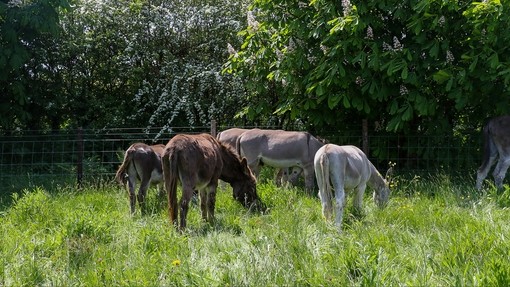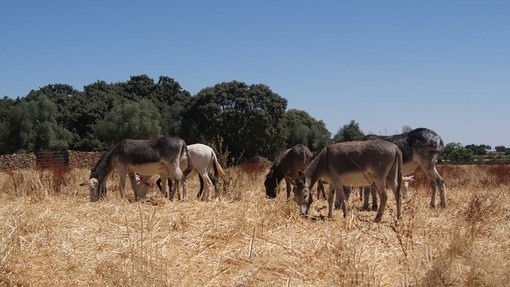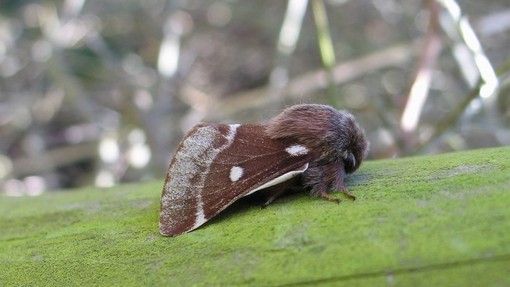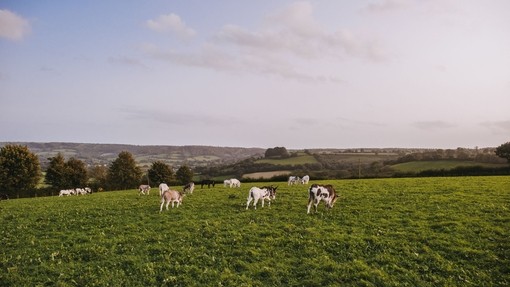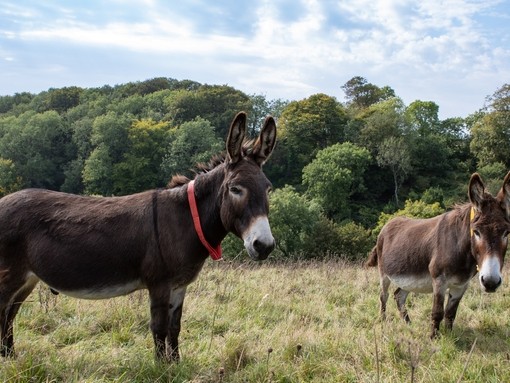
Page section Heading
For millennia, people have relied upon donkeys as a source of transport, as pack animals and as help for agricultural work.
Today, some of the donkeys at our sanctuaries play other important roles, such as helping people with additional needs as part of our Donkey Assisted Activities work.
But have you ever thought of donkeys as having a role in conservation? The idea may not be as farfetched as you might first imagine.
Conservation biologists have classified Horses and ponies as ‘keystone species’ because of the important role they can play in habitat maintenance and management. Through selective browsing, they create vegetation mosaics with shortly grazed patches mixed with areas of undisturbed vegetation, which helps boost biodiversity by providing multiple habitats for wildlife to find and exploit.
Here at The Donkey Sanctuary, we have taken note. Being responsible for such a large number of animals, we also have a duty of care towards their environment. Ultimately, if our land is well cared for, it will look after our donkeys in return.
Over the last few years, we have been encouraging our donkeys to experience more natural environments while simultaneously providing a conservation benefit through their grazing.
Freedom to roam
One project, ”Freedom to Roam”, has allowed donkeys to explore the semi-natural environment of the Weston Valley at The Donkey Sanctuary Sidmouth.
Here, donkeys can graze in flower-rich meadows and explore a woodland track and hedgerows. The donkeys benefit from the mental stimulus gained from experiencing more natural habitats. They also benefit from the chance to graze a range of native grasses and flowering plants, which are relatively low in sugars, high in fibre and more suitable for donkeys’ low-energy requirements.
Recently, we’ve gone one step further by involving donkeys directly in our conservation work. In a first for the charity, pairs of donkeys have been regularly walked through a wildflower meadow at Sidmouth, as part of their routine training and exercise.
The donkey disturbance helps to spread wildflower seed. The animal’s footfall can also fix plant seeds into the soil, helping to create a vibrant and biodiverse meadow.

Healthy meadows
Wildflower meadows are home to many species and greatly benefit many insects, including pollinators and the wildlife that depend on them.
The meadow is home to wildflowers such as common knapweed, bee orchid, oxeye daisy, bird’s-foot trefoil and yellow rattle. It attracts pollinating insects such as bees, hoverflies, and butterflies, including the small skipper and common blue. Threatened farmland birds such as skylarks and linnets and the long-eared bat and common pipistrelle have all been recorded at the site over the last couple of years.
So the conservation benefits are clear, but what’s in it for the donkeys? Our lead animal behaviourist Ben Hart explains: “Donkeys evolved to walk long distances searching for food.
“Walking more and exploring new environments while helping to re-seed the wildflower meadow creates opportunities to meet the donkeys’ natural needs, which in turn helps to improve their physical and mental wellbeing.”

A resilient environment
Ecology and Conservation Manager Ruth Angell adds: “Wildflower meadows are one of several types of habitat that we are trying to improve here at the sanctuary. As part of our conservation work, we are exploring ways in which donkeys can help us manage habitats and, in turn, benefit from living in an enriched environment. Biodiversity is essential for supporting life and natural processes, which make our environment more resilient.”
Donkeys have also grazed another wildflower meadow at Sidmouth for the first time this summer. The meadow, managed manually by conservation team volunteers, is expected to be improved by the natural action of donkey grazing.
So it is clear that donkeys can make an important contribution to improving the health of the land at The Donkey Sanctuary – maybe describing donkeys as conservationists isn’t so far-fetched after all.
Share this page
Tags
- Blog

